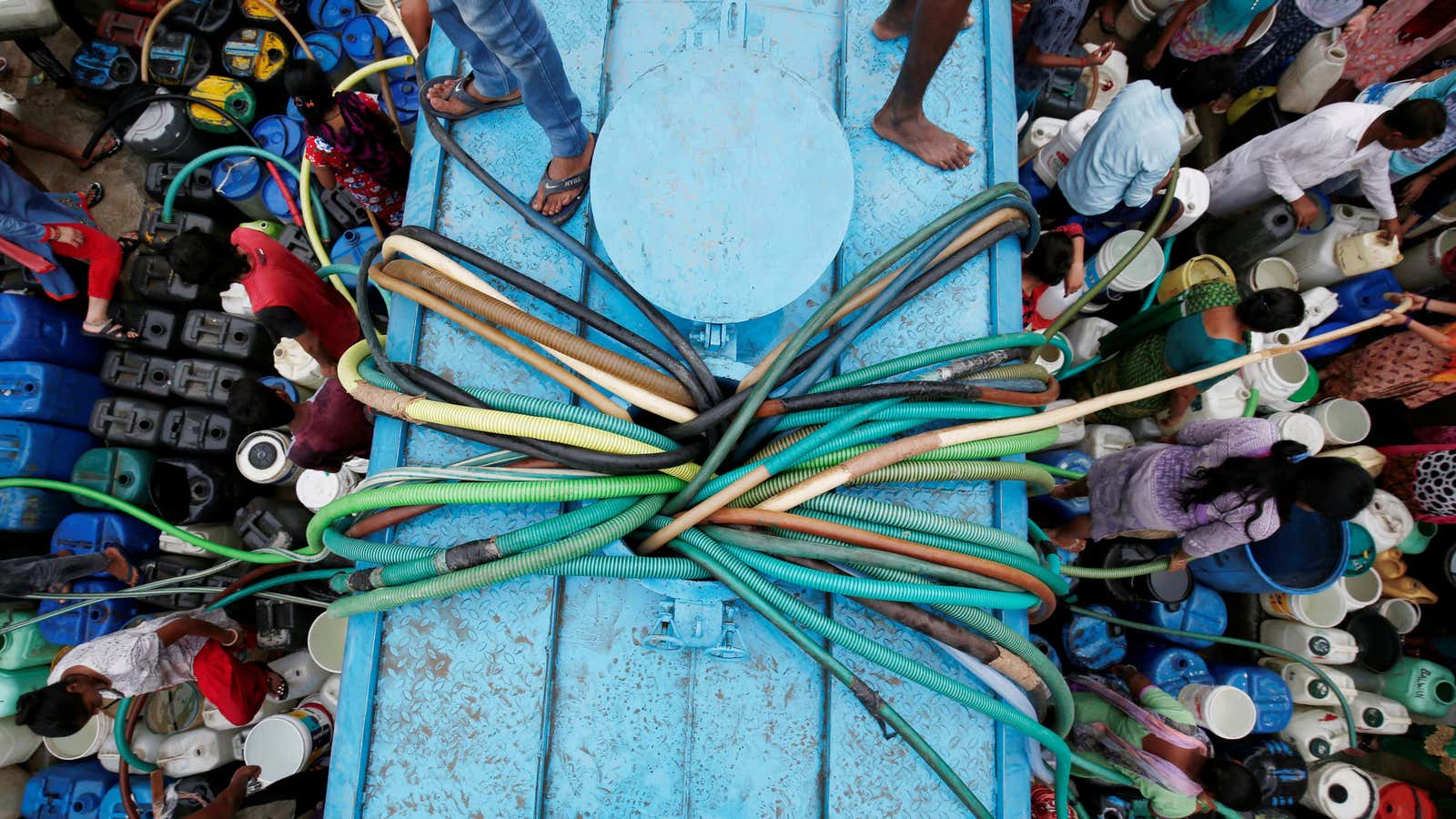Corporations in many sectors of industry use a lot of water. In general, industry uses around 20% of the world’s freshwater withdrawals, while in the wealthiest nations, corporate water consumption can be as much as 40% of the total. And according to one March 2019 survey, 64 of 86 (or 75% of) large, multinational companies polled have goals in place to use less.
Yet, when it comes to actually doing something to meet those goals, many companies have thrown up their hands. Almost half of the companies surveyed, or 44%, had no plan in place for how to reach water-savings goals.
The survey was conducted by Ecolab, a US-based water-and-energy technology firm, and the US-based GreenBiz group, which develops reports on sustainable business practices. All of the 86 companies surveyed had 2018 revenues of at least $1 billion, and spanned the tech, consumer goods, healthcare, and hospitality sectors. Almost 60% of those companies agreed that global water scarcity was becoming a business risk. But that didn’t mean they were doing anything about it.
Freshwater around the world is running out, due to a mix of climate change, population growth, and the resulting over-pumping of groundwater. By 2050, about 5 billion people globally are expected to suffer from water shortages, according to a recent UN report—that’s the equivalent of two-thirds of all people alive on Earth now.
In general, agriculture is a much bigger water user than industry—with use ranging from 40 to 80% of water withdrawals depending on the country. But in a world where freshwater is increasingly a limited resource, and the availability of drinking water for towns and cities is threatened, the industrial sector will have a major role to play in staving off shortages.
Looking for more in-depth coverage of water shortages? Sign up for a free trial of Quartz membership, and read our premium field guide on the global water crisis.
